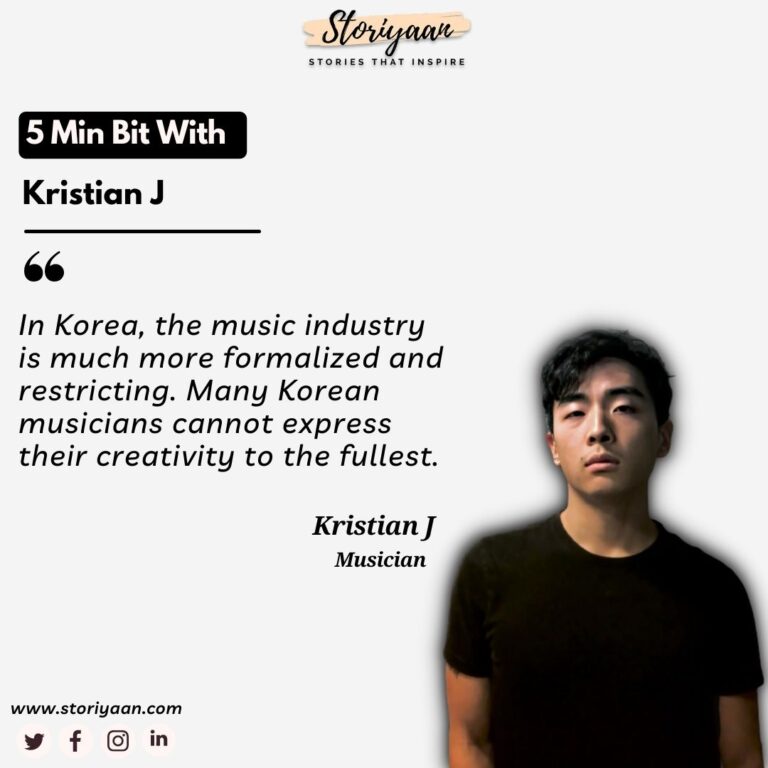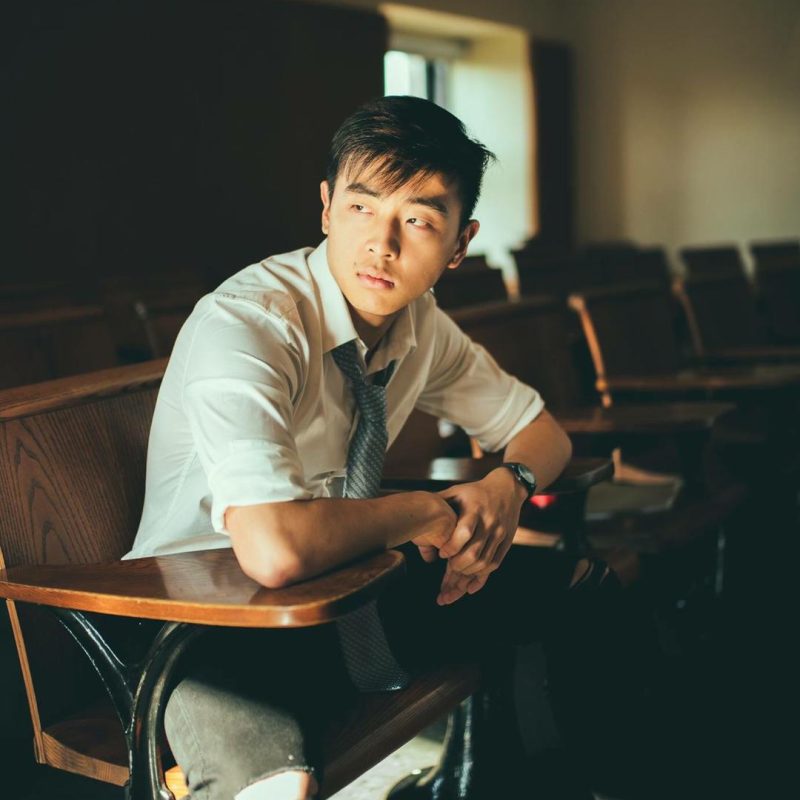Music is often the cornerstone for comfort and hope. We have found ourselves deep-diving into music when the world feels heavier. Meet Kristian J, an Independent Musician and Singer who is using his art to express himself. Born and brought up in the US, he travelled to Korea to learn and study pop music.
Being queer, he found it increasingly difficult to work in a society that is not very open and accepting of the LGBTQ+ community. This made Kristian, become the voice of the unheard and made LGBTQ+ awareness and advocacy a part of his music journey. Read more about this young and talented musician making inroads into the competitive world of music in this exclusive interview with Storiyaan.

Interview
Questions and answers
When was the first time you realized you wanted to continue your journey with music and become a performing artist?
I always wanted to be a performer and a musician, ever since I was a little kid.
But I was too shy and found myself worrying about getting an education and a stable job. It was only after my graduation that I built up the courage to follow my dream.
Having worked in both the U.S and Korea, what were the major striking factors you found in the music industry?
In Korea, the music industry is much more formalized and restricting. Many Korean musicians cannot express their creativity to the fullest in the Korean market. While in the U.S the industry is freer and more fluid, finding your place as an independent artist is still a difficult journey.
Can you share with us one story behind the making of a song?
I often like to include my dreams in my songs. I have one old song called “Come Away” that was inspired by a dream I had in elementary school. The dream was about flying away in a car to cities floating on the clouds. Moreover, a lot of my songs are about running away, escaping society, and being free.
Can you confide in us some of the works that you have done with renowned music producers from all over the world?
I have yet to work with renowned producers but I have had the pleasure to work with talented people from all over the world. One of my closest friends is a music producer living in Korea, and he and I have worked on many songs together. Additionally, thanks to social media, I’ve also been able to collaborate with people from Italy, Indonesia, South Africa, and Canada.
Your journey must have many hurdles and roadblocks. How did you manage to overcome them and follow what your heart has said?
Initially, it is important to be practical and figure additional ways to make money besides music. When you begin as an artist, the money is low. Thus, it is important to visualize your life’s purpose so that you have the motivation to pursue it.
Art does not see any gender, it is free but still, there are various dogmas rooted in our society. What is your viewpoint on the same?
Art can also be restrictive. If you’re creating art for other people to consume, like a musician does, you have to constantly be thinking of what people want to see, what critics deem “artistic”, and what your “brand of music” should be. I wish it weren’t that way, but at the end of the day, I’m not making this art just for myself.
Still there are people from the LGBTQ community who are not confident about themselves and have enclosed themselves in a cocoon. What would be your message to them?
My message will be to be confident and love yourself. Societies change, standards change, taboos change, but you will always be you. One day society will stop judging other people for being themselves and I want you to understand this truth and find strength within yourself.

The Story of Hair Care Revolution with Traya
From Struggles to Solutions: There’s Hope For Hair with Traya Hair carries emotions, memories, and stories—of the entangled fingers of loved ones, the tug of

